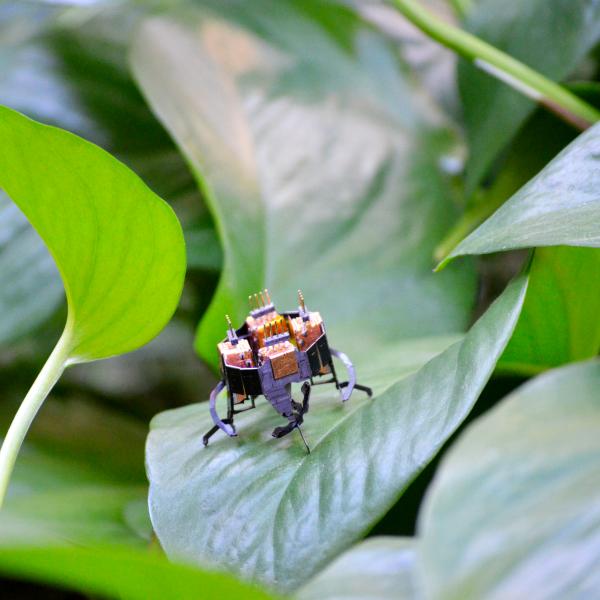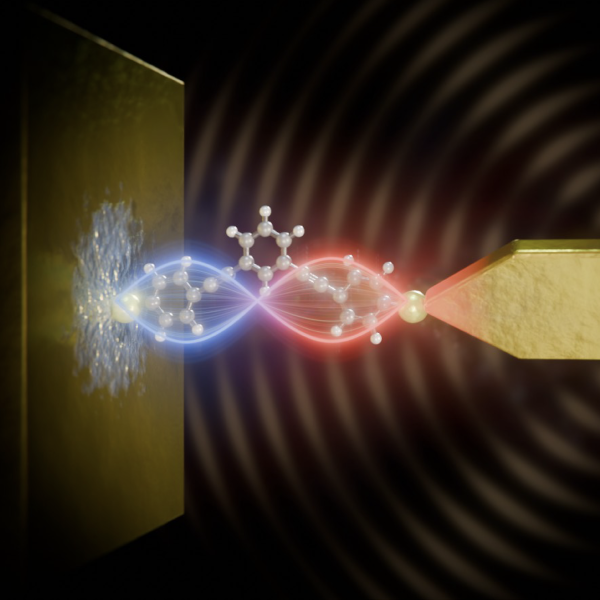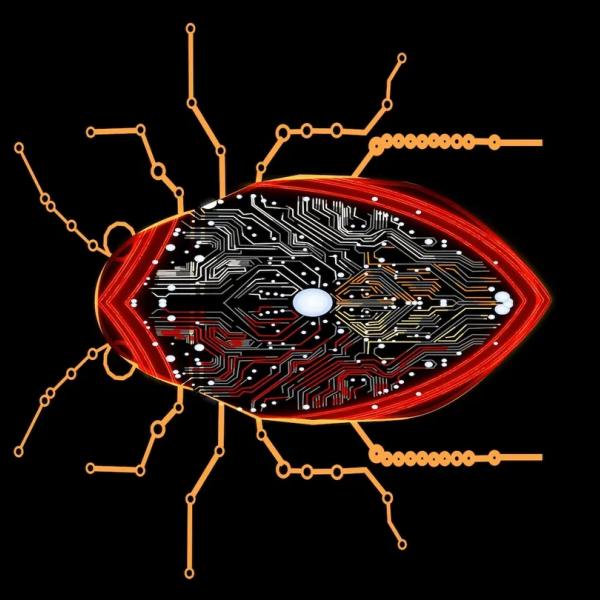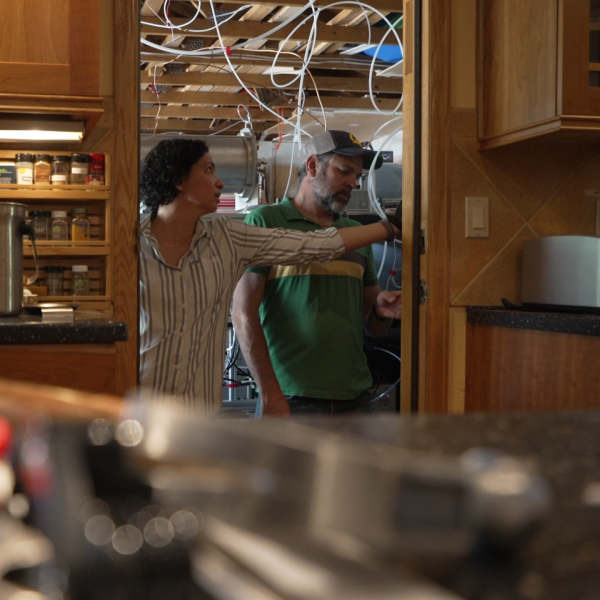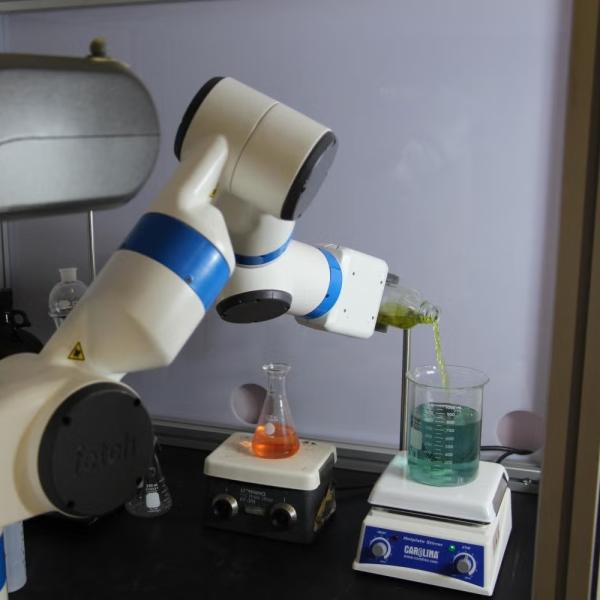Jul. 14, 2025 - External Newsletter
News from the Paul M. Rady Department of Mechanical Engineering
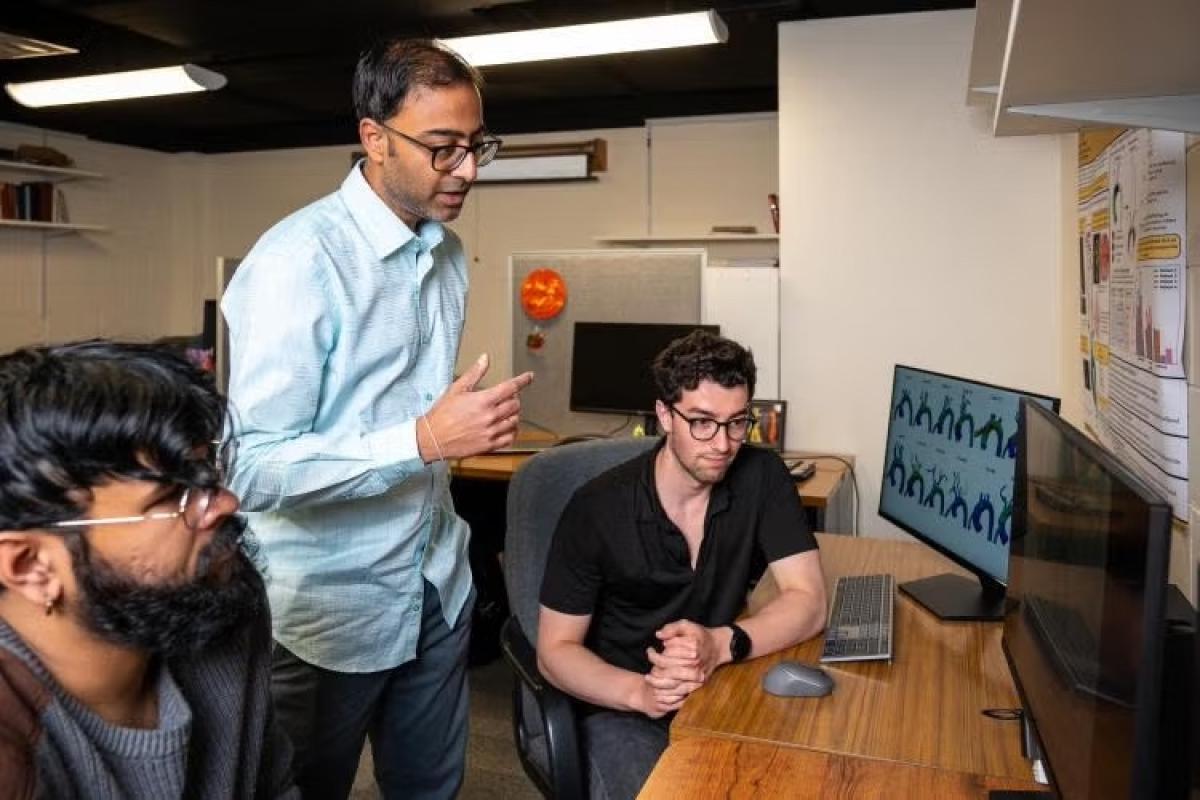
Left ventricular assist devices (LVAD) designed to improve blood flow throughout the body can aid nearly 26 million people globally struggling with heart failure. But these implantable devices come with risks. New research by Assistant Professor Debanjan Mukherjee suggests that studying patient blood flow patterns could help determine who’s at risk of dangerous side effects from LVADs and lead to improvements that could make them safer.
High Impact, Interdisciplinary Research
New study shows road emission policies could save 1.9M lives by 2040
A new global study co-authored by Professor Daven Henze reveals that implementing smart policies that address road transport emissions can improve health outcomes across more than 180 countries and 13,000 urban areas.
Tiny robot team could be a gamechanger for safety inspections
Assistant Professor Kaushik Jayaram, in collaboration with Laura Blumenschein, has received a $1.4 million grant from the U.S. Air Force Research Laboratory to develop a tiny robot super team capable of navigating a complex maze of machinery and squeeze through the tightest of spaces—like the guts of a jet engine—to potentially perform non-destructive evaluation faster, cheaper and better than ever before.
New discovery shows how molecules can mute heat like music
Assistant Professor Longji Cui and his team in the Cui Research Group have developed a new technique that allows them to measure phonon interference inside of a tiny molecule. They believe one day, this discovery can revolutionize how heat dissipation is managed in future electronics and materials.
We can turn bugs into flying, crawling RoboCops. Does that mean we should?
Scientists and engineers are modifying animals with mechanical parts to create next-generation biohybrid cyborg animals that can perform difficult and unappealing tasks for humans. But do humans have the right to overlook animal consciousness for personal gain? In this article by Salon, Assistant Professor Nicole Xu blazes this new terrain and explores the ethical considerations behind these biohybrid creatures using her jellyfish case study as an example.
Vance turns her house into lab to study health risks of cleaning products
Since the start of the COVID-19 pandemic, global spending on household cleaning products have increased by nearly $50 billion. Associate Professor Marina Vance is turning her home into a research laboratory to study and explore the possible implications of the increased product usage on human health.
Robots and chemistry isn’t just a fun combo. Bruns says it’s the future
Assistant Professor Carson Bruns is leading the charge on an NSF-funded project that he and his team like to call "robochemistry." Their goal is to create robotic sidekicks that can assist chemists with burdensome or unsafe tasks that they may routinely encounter in a wet lab. But that's not all: this unique blend of bots and beakers can also inspire youth interest in science.
CU Engineering Magazine
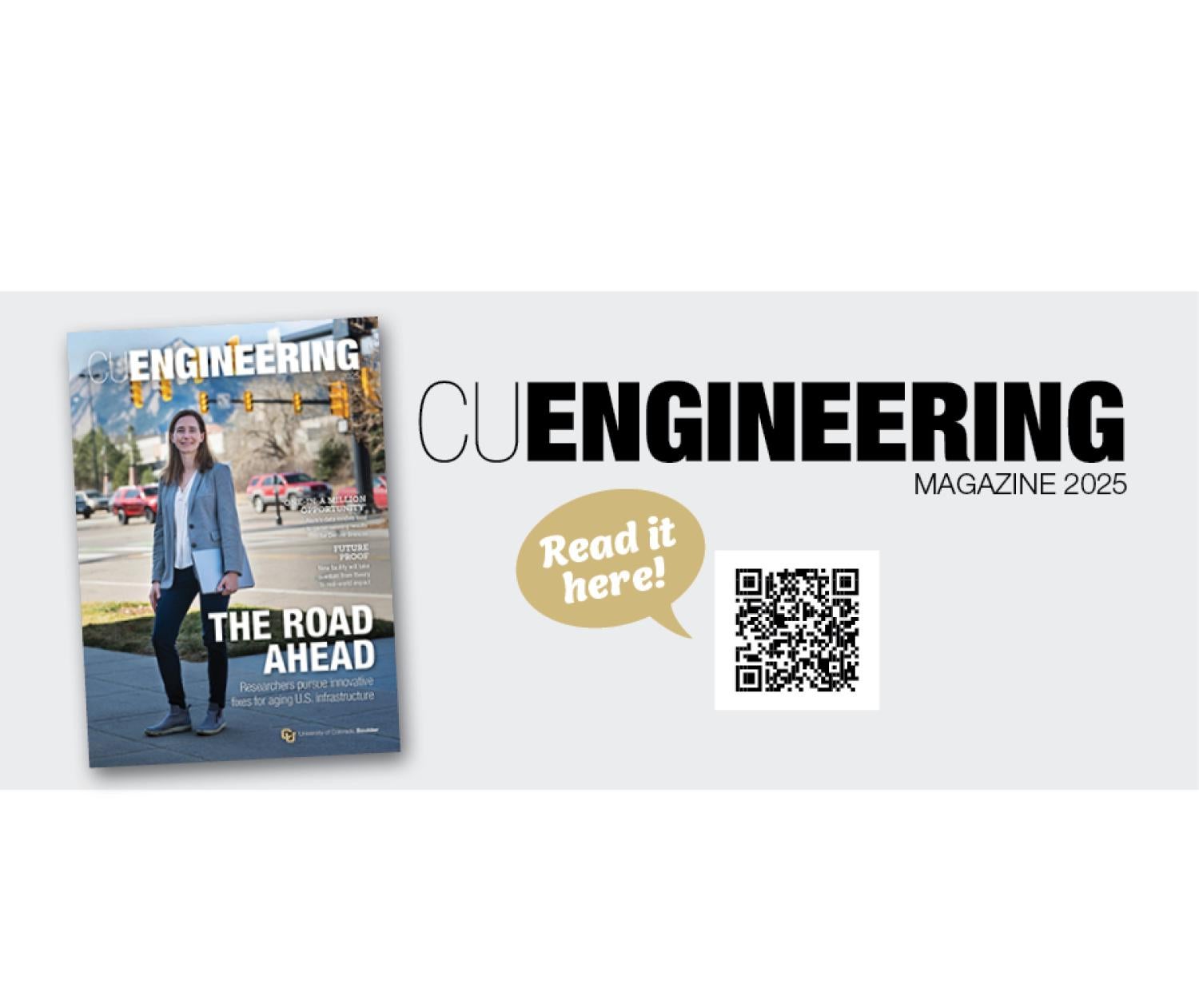
Check out this year's edition of the CU Engineering Magazine and read stories highlighting just a few of the ways our research is having an impact on everyday lives. Whether it is tackling serious challenges to infrastructure in the U.S., designing technology for a local couple to use in their own backyard, or innovating in healthcare, our faculty and students always have an eye on how we can engineer sustainable solutions to improve the quality of life in our state, nation and world.
Other Department Highlights
- Boulder's Mana Battery is in race to perfect sodium-ion battery technology | Daily Camera
- Jayaram nabs prestigious grants to design insect-inspired, shapeshifting robots | CU Boulder Today
- Bruns explores nanotech that turns plastic into fertilizer with RIO seed grant | The ATLAS Institute
- Game plan: ME alum scores a data science job with the Denver Broncos | CUE Magazine
- ME senior project aims to keep bomb squads out of harm's way | CUME
- Bruns researches cybernetic human advancement with New Frontier's Grant | The ATLAS Institute
- ME seniors design new fluid aliquoting device to help ease hospital workloads | CUME
- CU Boulder students win big at collegiate hydropower competition | CUME
- Five mechanical engineering students, affiliates earn NSF recognition | CUME



